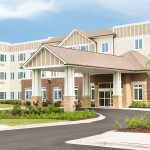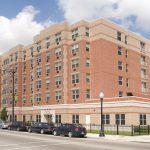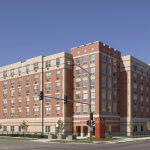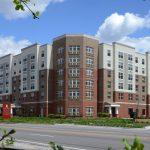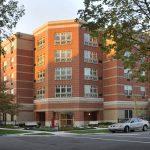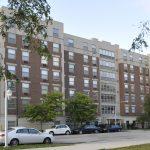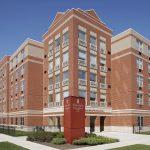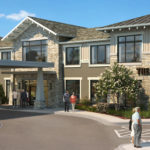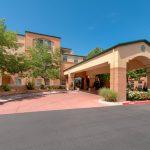Select a Community Below
-
13875 Clear Lake Cir
Woodbridge, VA 22191703-485-2122Lifestyle Options -
4801 Pretty Lake Ave
Norfolk, VA 23518757-982-5038Lifestyle Options -
762 N. Main Street
Alpharetta, GA 30009678-319-3000Lifestyle Options -
890 Scranton Road
Brunswick, GA 31525912-265-0225Lifestyle Options -
5700 Water Tower Place
Independence Charter Township, MI 48346248-625-0500Lifestyle Options -
212 Fairview Park Drive
Dublin, GA 31021478-275-9888Lifestyle Options -
5050 Kimball Bridge Road
Johns Creek, GA 30005770-754-5446Lifestyle Options -
1031 Community Drive
Jupiter, FL 33458561-253-8161Lifestyle Options -
340 W. 40th St
Holland, MI 49423616-394-0302Lifestyle Options -
42010 W. Seven Mile Road
Northville, MI 48167248-305-9600Lifestyle Options -
3400 SE Aster Lane
Stuart, FL 34994772-223-0883Lifestyle Options -
497 N. Washington Avenue
Titusville, FL 32796321-383-2112Lifestyle Options -
5020 Sulky Dr
Richmond, VA 23228804-238-9447Lifestyle Options -
35 Shawmut Ave
La Grange, IL 60525708-206-9899Lifestyle Options -
4855 Babson Pl.
Cincinnati, OH 45227513-561-9100Lifestyle Options -
7222 Heritagespring Dr.
West Chester, OH 45069513-777-4457Lifestyle Options -
1260 Creekside Blvd.
Naples, FL 34109239-213-9370Lifestyle Options -
3949 Evans to Locks Road
Evans, GA 30809706-922-9762Lifestyle Options -
200 Kidd Castle Way
Webster, NY 14580585-670-7300Lifestyle Options -
2 The Boulevard
Newtown, CT 06470(203) 701-6240Lifestyle Options -
440 Minot Ave
Auburn, ME 04210207-784-3573Lifestyle Options -
1545 Southeast 223rd Avenue
Gresham, OR 97030503-667-4500Lifestyle Options -
230 W. Galbraith Rd.
Cincinnati, OH 45215513-948-2308Lifestyle Options -
50 New Portland Rd
Gorham, ME 04038207-839-5757Lifestyle Options -
22320 Classic Ct.
Lake Barrington, IL 60010847-842-8900Lifestyle Options -
12105 Ambassador Dr.
Colorado Springs, CO 80921719-481-9494Lifestyle Options -
7000 N. McCormick Blvd.
Lincolnwood, IL 60712847-673-7166Lifestyle Options -
110 Mangrove Bay Way
Jupiter, FL 33477561-575-3123Lifestyle Options -
5217 Chesebro Rd.
Agoura Hills, CA 91301818-991-3544Lifestyle Options -
1000 Sunset Ridge Rd.
Northbrook, IL 60062224-326-2600Lifestyle Options -
1091 Horsham Rd
North Wales, PA 19454215-542-9670Lifestyle Options -
1040 Dixie Hwy.
Chicago Heights, IL 60411708-754-5700Lifestyle Options -
1546 W. Water St.
Blue Island, IL 60406708-489-1503Lifestyle Options -
3755 Peachtree Road NE
Atlanta, GA 30319404-237-2323Lifestyle Options -
3908 Kell Blvd.
Wichita Falls, TX 76309940-696-2296Lifestyle Options -
100 Kidd Castle Way
Webster, NY 14580585-670-7000Lifestyle Options -
1050 W. 79th St.
Chicago, IL 60620773-723-0333Lifestyle Options- Independent Living
- Affordable Senior Housing
-
335 N. Menard Ave.
Chicago, IL 60644773-378-0333Lifestyle Options- Independent Living
- Affordable Senior Housing
-
6045 W. Grand Ave.
Chicago, IL 60639773-237-1333Lifestyle Options- Independent Living
- Affordable Senior Housing
-
2825 S. Halsted St.
Chicago, IL 60608312-326-0333Lifestyle Options- Independent Living
- Affordable Senior Housing
-
1400 S. Indiana Ave.
Chicago, IL 60605312-913-9333Lifestyle Options- Independent Living
- Affordable Senior Housing
-
8300 S. Cottage Grove Ave.
Chicago, IL 60619773-488-1333Lifestyle Options- Independent Living
- Affordable Senior Housing
-
5700 N. Harlem Ave.
Chicago, IL 60631773-763-4817Lifestyle Options- Independent Living
- Affordable Senior Housing
-
3244 W. 59th St.
Chicago, IL 60629773-434-4333Lifestyle Options- Independent Living
- Affordable Senior Housing
-
5839 S. Harlem Ave.
Chicago, IL 60638773-229-1533Lifestyle Options- Independent Living
- Affordable Senior Housing
-
13550 S. Ave. O.
Chicago, IL 60633773-646-1333Lifestyle Options- Independent Living
- Affordable Senior Housing
-
5400 N. Northwest Hwy.
Chicago, IL 60630773-775-7333Lifestyle Options- Independent Living
- Affordable Senior Housing
-
215 N. Ottawa St.
Joliet, IL 60432815-723-0333Lifestyle Options- Independent Living
- Affordable Senior Housing
-
4845 S. Western Blvd.
Chicago, IL 60602773-523-9333Lifestyle Options- Independent Living
- Affordable Senior Housing
-
3201 Randolph St.
Bellwood, IL 60104708-240-4156Lifestyle Options- Independent Living
- Affordable Senior Housing
-
13201 S. Ashland Ave.
Blue Island, IL 60406708-293-0333Lifestyle Options- Independent Living
- Affordable Senior Housing
-
2715 N. Cicero Ave.
Chicago, IL 60639773-252-0333Lifestyle Options- Independent Living
- Affordable Senior Housing
-
7430 S. Rockwell St.
Chicago, IL 60629773-436-0333Lifestyle Options- Independent Living
- Affordable Senior Housing
-
6800 S. Keating Ave.
Chicago, IL 60629773-582-1333Lifestyle Options- Independent Living
- Affordable Senior Housing
-
2804 E. 77th Pl.
Chicago, IL 60649773-374-5333Lifestyle Options- Independent Living
- Affordable Senior Housing
-
2800 W. Montrose Ave.
Chicago, IL 60618773-509-9333Lifestyle Options- Independent Living
- Affordable Senior Housing
-
2355 E. 67th St.
Chicago, IL 60649773-324-2333Lifestyle Options- Independent Living
- Affordable Senior Housing
-
848 W. 103rd St.
Chicago, IL 60643773-233-1333Lifestyle Options- Independent Living
- Affordable Senior Housing
-
3656 W. Huron St.
Chicago, IL 60624773-638-0333Lifestyle Options- Independent Living
- Affordable Senior Housing
-
4255 N. Oak Park Ave.
Chicago, IL 60634773-202-5914Lifestyle Options- Independent Living
- Affordable Senior Housing
-
2 Victoria Ct
York, ME 03909207-363-5116Lifestyle Options -
1450 Marlton Pike East
Cherry Hill Township, NJ 08034856-874-7700Lifestyle Options -
22 W Clen Moore Blvd
New Castle, PA 16105724-656-0132Lifestyle Options -
2300 Canfield Rd
Youngstown, OH 44511330-793-0085Lifestyle Options -
1545 Erie Station Rd
Henrietta, NY 14467585-334-5006Lifestyle Options -
681 High St
Victor, NY 14564585-924-7043Lifestyle Options -
2400 Garden Way
Hermitage, PA 16148724-347-1964Lifestyle Options -
39 Supawna Rd
Pennsville, NJ 08070856-339-0100Lifestyle Options -
139 Craigdell Rd
New Kensington, PA 15068724-334-0529Lifestyle Options -
100 Stirling Village
Butler, PA 16001724-287-2171Lifestyle Options -
500 Cheney Oak Dr
Johnstown, PA 15905814- 255-2213Lifestyle Options -
116 Madison Circle
Indiana, PA 15701724-465-9606Lifestyle Options -
1000 Providence Circle
Greece, NY 14616585-865-0680Lifestyle Options -
2000 Park Creek Ln
Churchville, NY 14428585-889-6590Lifestyle Options -
199 Steelmanville Rd
Egg Harbor Township, NJ 08234609-926-5891Lifestyle Options -
660 Cherry Tree Ln
Uniontown, PA 15401724-430-7258Lifestyle Options -
40 Willow Pond Way
Penfield, NY 14526585-388-7663Lifestyle Options -
2619 Trenton Rd
Levittown, PA 19056215-943-6611Lifestyle Options -
5333 N. Sheridan Rd.
Chicago, IL 60640773-878-5333Lifestyle Options -
25 Scarborough Rd.
Briarcliff Manor, NY 10510914-373-2545Lifestyle Options -
2301 W. Palm Dr.
Tampa, FL 33629813-251-6333Lifestyle Options -
1330 Massachusetts Ave. NW
Washington, DC 20005202-628-3844Lifestyle Options -
7300 Dearwester Dr.
Cincinnati, OH 45236513-984-9400Lifestyle Options -
1900 Tree Lane
Snellville, GA 30078(678) 668-8194Lifestyle Options -
29330 N. Waukegan Rd.
Lake Bluff, IL 60044(847) 857-6261Lifestyle Options -
2055 Clearwater Dr.
Oak Brook, IL 60523630-394-5055Lifestyle Options -
510 N. Greenwood Ave.
Park Ridge, IL 60068(224) 374-1285Lifestyle Options -
800 North Harlem Avenue
River Forest, IL 60305708-998-4844Lifestyle Options -
134 Ritchie Highway
Pasadena, MD 21122410-793-1940Lifestyle Options -
508 N. McLean Blvd.
Elgin, IL 60123224-268-3268Lifestyle Options -
7201 Prospect Pl. N.E.
Albuquerque, NM 87110505-881-0120Lifestyle Options -
839 Bennie Rd.
Cortland, NY 13045607-756-8101Lifestyle Options -
1361 East Boot Rd
West Chester, PA 19380484-653-1200Lifestyle Options
Loading Map
































